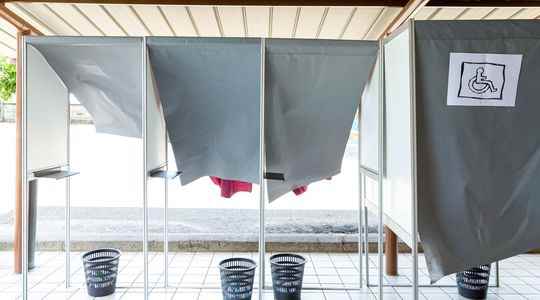2,000 kilometers from Ukraine, where the population is fighting for its freedom, some French people do not intend to take advantage of one of their most fundamental rights, that of voting. “I don’t really see the point of doing it,” sighs Sarah, a pastry chef in southwestern France. On the eve of the presidential election, it is difficult for the young woman to escape the discussions of her entourage on the ballot for this Sunday, April 10: “When I say that I do not vote, everyone replies that it is wrong . I know it all feeling really judged,” she explains. At 26, Sarah has only voted once: the year she turned 18, for the municipal elections in her village of 600 inhabitants. “My parents pushed me to accompany them. If they hadn’t insisted, I probably wouldn’t have gone,” she says. Since then, she has never set foot in the voting booth again. During the in-between rounds, she will even leave for a long stay in Mayotte, without preparing a power of attorney. “I didn’t even think about that!” she laughs.
At each election, abstention is presented as the barometer of the health of French democracy. Mistrust of those in power, disgust for politics… Its increase continues to be commented on as the symptom of a sick country. Nothing more to do, nothing more to fuck, even summed up the title of the essay by pollster Brice Teinturier, published in February 2017, a reflection on this “powerful current of thought which expresses a deep resentment and detachment from politics”. This phenomenon exists and it is worrying, of course. But to listen to Pierre Bréchon, professor emeritus of political science at the IEP of Grenoble, it would not be enough to grasp all the complexity of the subject: “When we question the abstentionists, we realize that a quarter of them about express no displeasure. Their abstention is purely individualistic, they don’t care or they have better things to do that day.”
“Vote or not, everything will continue as before”
We interviewed several of them, who could easily be called “happy abstainers”. So from Léo, a 23-year-old laboratory technician: “The right to vote is important, I know that. But I am registered in Limoges and I am currently working in another region. Concretely, I do not have time to go.” Same speech for Thomas, 30, resident of the capital. “It’s tedious, and as I moved since my registration on the electoral lists, I would have to move to the other end of Paris, he explains. A real waste of time!” The result of April 10 could perhaps put his foot in the stirrup “if the extreme right arrives in the second round”. “But only because I think it might harm more vulnerable friends, because they are LGBT for example,” he explains. Will he do it though? “In 2017, I did not move. We will see for this time.”
Others are more categorical. The dam on the far right? Very little for Leo. “A dam is people who have no ideas who will vote to deprive those who have them!”, he says, proud of his formula. He does not particularly carry the candidate of the National Rally in his heart, but because he doubts his effectiveness if she arrived at the Elysée. As if, beyond the political indifference he displayed, he naturally trusted our democracy to contain overly radical ideologies: “She or Zemmour… I’m sure that if someone a bit extreme arrived in power, the counter-powers would be there to stop it. There would be citizen mobilization, demonstrations… Maybe that would wake up society a little.” Pierre Bréchon sees in these behaviors a consequence of the “individualization” of our society, which does not worry him unduly: “People are more individualized than before, this induces more critical electoral behavior, more reasoned too. But This does not mean that these abstainers are indifferent to the fate of others. They just do not use elections to express their collective sentiment.”
Sarah’s reflection illustrates this double feeling well. “Whether I vote or not, everything will continue as before. So why move me?”, she tells us. The pastry chef seems to have internalized the solidity of our institutions, she does not think that the election of Marine Le Pen “would change much” in her life. It also seems to have drawn a line under the emancipatory power of politics. Which is more striking.
